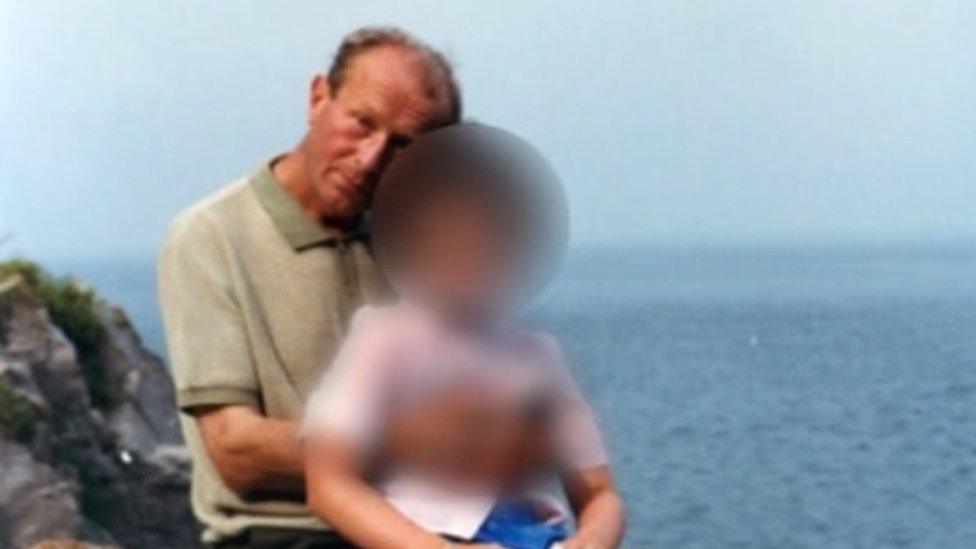Caldey Island: Historical child sex abuse claims re-investigated
- Published
Alleged sex abuse victim details "horrible time"
Claims of historical abuse involving priests and religious figures are being re-investigated by police following new information from an abuse survivor.
Kevin O'Connell claimed he was sexually abused by Father Thaddeus Kotik, a monk living on Caldey Island, as a child.
The 59-year-old has campaigned for a public inquiry into alleged historical child sexual exploitation on the Pembrokeshire island.
The Welsh and UK governments have rejected calls for an inquiry.
Earlier this month, Mr O'Connell saw a petition containing over 5,000 signatures closed by the Senedd's Petitions Committee.
Despite this, Mr O'Connell told the Newyddion S4C programme he maintained that an inquiry is desperately needed to learn lessons of the past and prevent failings in future.
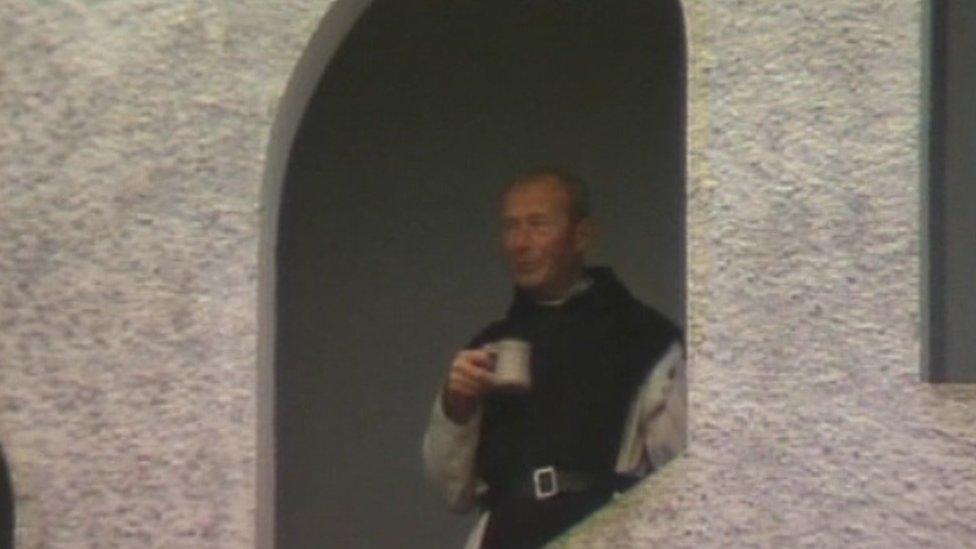
Sex abuse claims against Father Thaddeus Kotik could not be investigated following his death
Kotik, a Cistercian Monk who lived on Caldey Island since 1947, died in 1992 without facing any criminal charges into claims he had abused children.
In 2017, six women received compensation from the island's Cistercian abbey after claiming to have been abused by Kotik.
Warning: Upsetting content
Speaking to Newyddion S4C, Mr O'Connell has also claimed to have been visited in his parents' home by Kotik and a Catholic priest named Father Charles Jeffries, who he said he first met at Caldey Island.
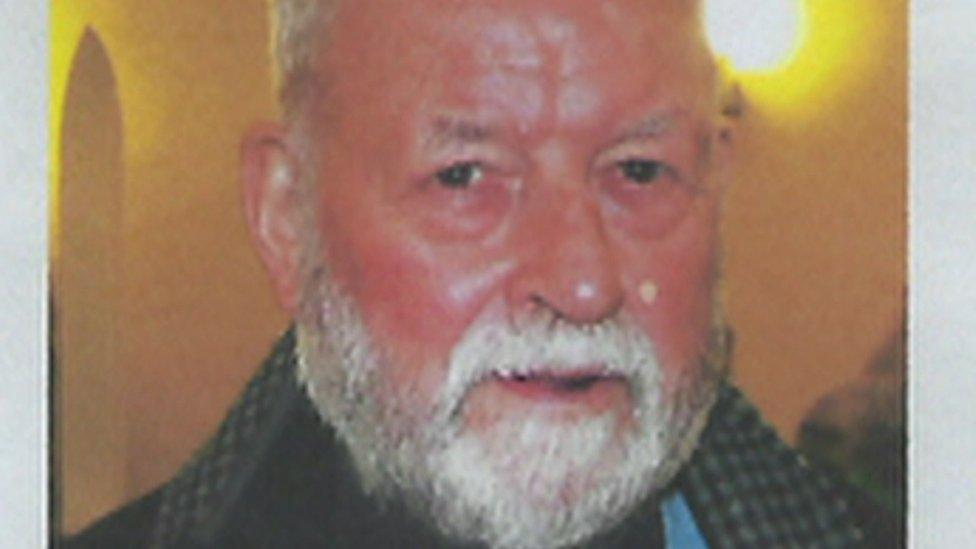
Catholic priest Father Charles Jeffries served in the Arundel and Brighton diocese
He said Fr Jeffries sexually abused him in his own bedroom and that he was also sent on holiday to his home annually for about five years in the late 1960s and early 1970s.
He claimed he was sexually abused by Fr Jeffries and others he believes to have been priests and religious figures.
Mr O'Connell said: "It would start off, you'd be given a pill before, it's a double bed, you came out of the bedroom.
"In the evening, I'd be taken to this room. There'd be men. They'd be drinking, smoking. Then they'd give me this mead, I know now it was mead.
"And then… things would start happening when they would take my pants off."
He said he coped by taking his mind elsewhere, into a "fantasy world".
"I used to have an escape route in my mind where I would blank off what was happening around me. Sometimes for hours, sometimes for days where I'd go into a fantasy world - dragons or whatever," he said.
"A fantasy world. I think that saved me. Because when I do wake up, I always woke up in the double bed. No pants or whatever.
"And Father Charles would come back in and give me another tablet. I always thought these tablets were painkillers.
"I know the one at night wasn't a painkiller because it made me feel quite funny quite quick. I remember it like yesterday."
Fr Jeffries died two years ago.
Arundel and Brighton diocese, where he served, said in a statement that it was "deeply concerned" by the allegation made against Fr Jeffries.
"The diocese was first made aware of the allegation by the media and have had no contact with the individual concerned," it said.
"Our safeguarding team would like to assure anyone wishing to discuss or report such a matter that we will listen to you, take you seriously, and consider how best we can support you."
It also said that it was the policy of the Catholic Church in England and Wales to report all allegations of abuse to the police "regardless of whether the abuse occurred recently or in the past, or whether the accused person is living or has died".
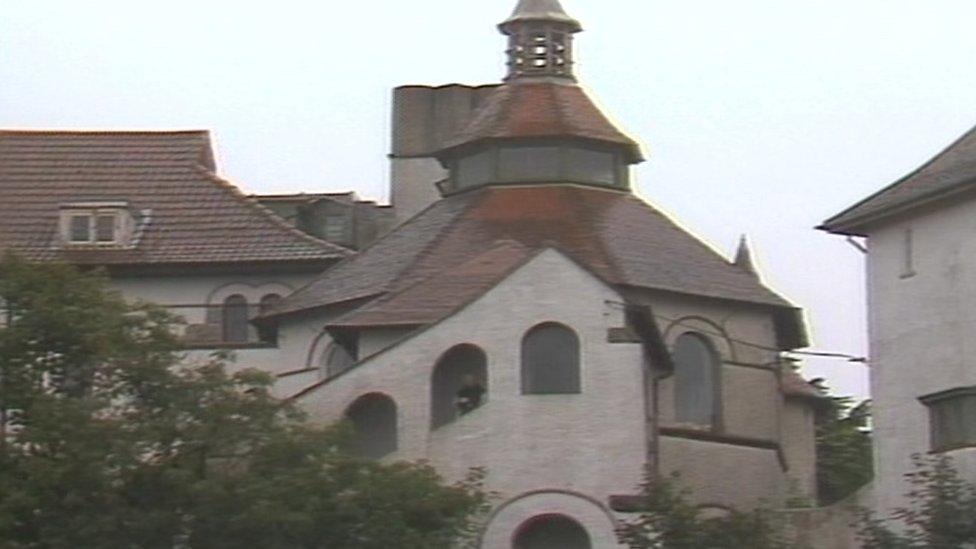
The Cistercian Order, who run the abbey on Caldey Island, has not issued a response to Mr O'Connell's claims
Mr O'Connell said he previously gave six hours of evidence to Dyfed-Powys Police about his abuse, which included allegations against Fr Jeffries.
A file was then passed on to Sussex police, as the diocese where Fr Jeffries served was largely within that force area. The case was opened and closed by Sussex police.
Both police forces, Sussex Police and Dyfed-Powys Police, were asked to respond to claims made by Mr O'Connell.
Sussex Police said there was not enough new information available that would enable them to progress an investigation.
However, Newyddion S4C has established that although the diocese where Fr Jeffries worked was largely in Sussex, the address where Mr O'Connell alleges he was abused is in Surrey.
When contacted about this, Surrey Police said they had not been made aware of the allegations by the victim nor Dyfed-Powys or Sussex Police forces and had no comment to make.
Dyfed-Powys Police said in a statement that because information has brought forward that was "not previously disclosed in the initial complaint", officers would investigate further.
The force said it received the complaint on 11 April 2019, where "enquiries were made to identify the suspect and it was established that he died two days after the report was made".
"While we cannot prosecute persons who are deceased, all victims are asked to provide an account to police in order that any other persons linked to the offence can be investigated fully," it said.
Dyfed-Powys Police added that it had passed on all information to the relevant police force.
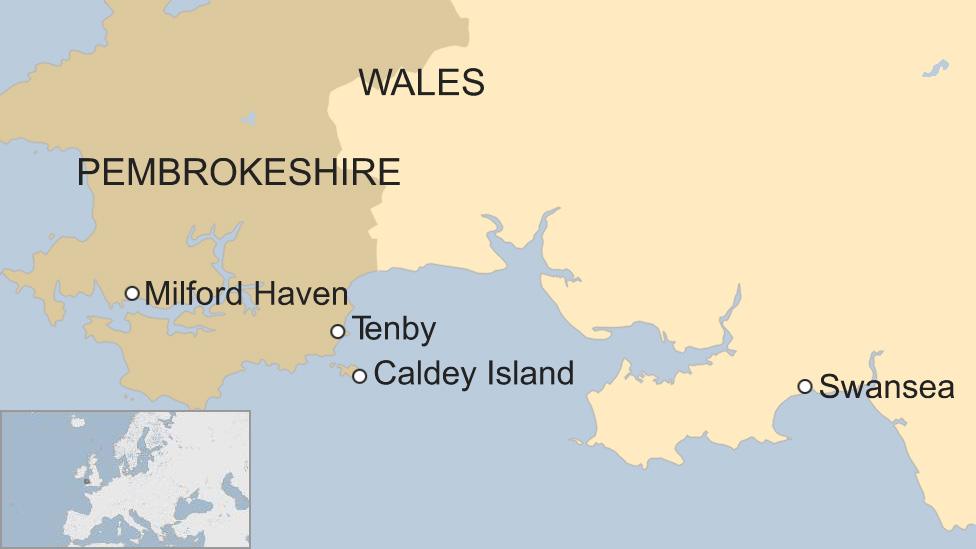
Newyddion S4C has made repeated attempts over several weeks to get a response from the Cistercian Order, who run the abbey on Caldey Island, into the claims made by Mr O'Connell and his calls for a public inquiry, but have not received one.
Mr O'Connell said he would continue his fight for a full inquiry into abuse at, and connected to, Caldey Island.
If you or someone you know has been affected by the issues raised in this article, help and support is available via the BBC Action Line.
Related topics
- Published10 August 2018
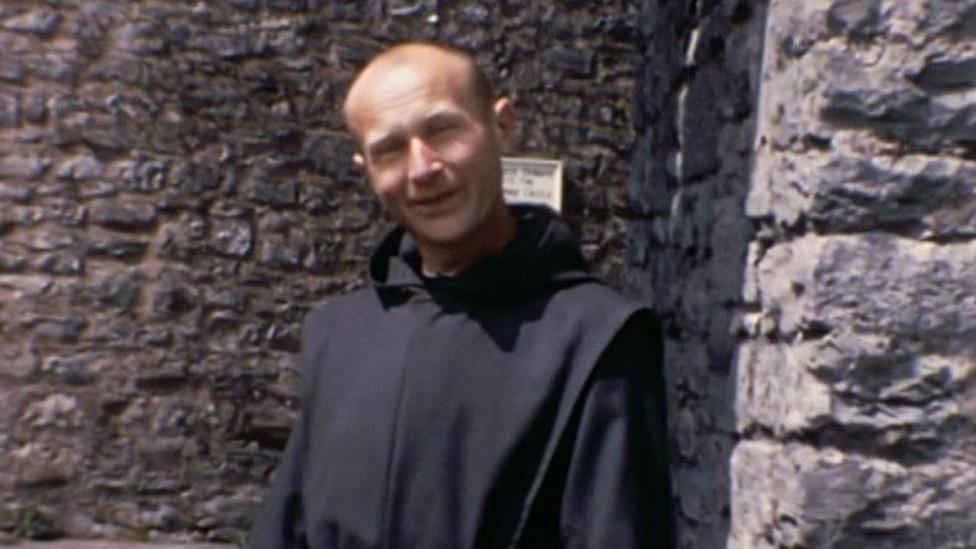
- Published9 February 2018
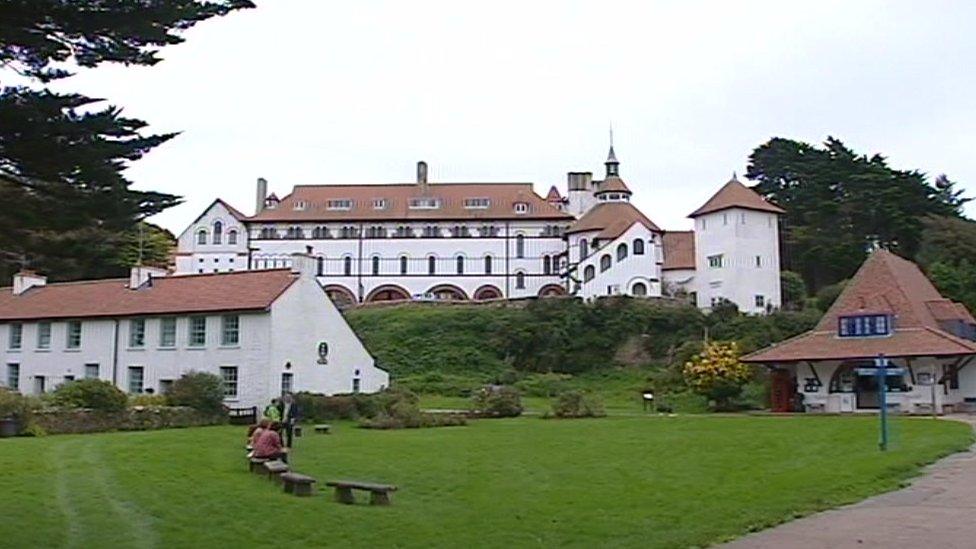
- Published29 December 2017

- Published7 December 2017
